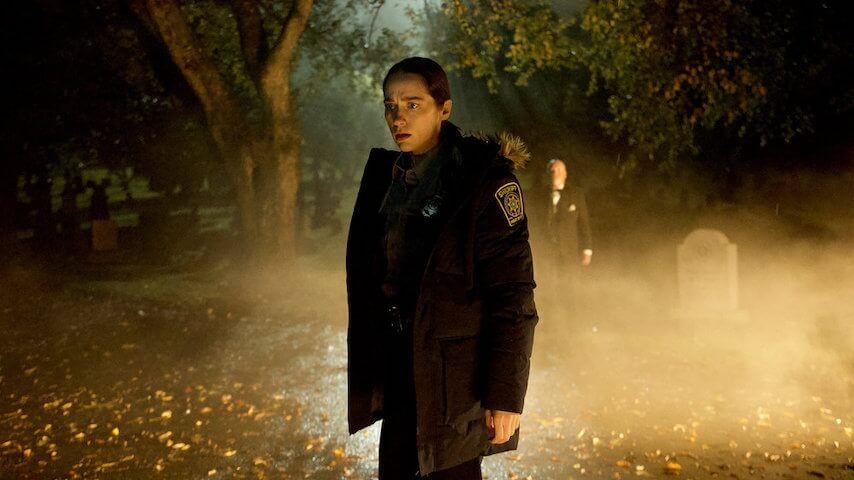Rural noir Revival is heavy on drama and light on thorny questions
Syfy brings the engrossing horror comics series to life.
Photo: Mathieu Savidant/Lavivier Productions/SYFY
The dead walk the Earth—or at least Wausau, Wisconsin—in Revival, the new Syfy series created by Aaron B. Koontz and Revealer director Luke Boyce that’s based on the engrossing, 47-issue Image Comics yarn. This ten-episode season streamlines the comics’ rural-noir trappings with televisual pop and burdens its installments with a tottering dramatic structure that leaves only a teensy bit of space for the small-town idiosyncrasies found in distant spiritual cousins like Twin Peaks or Northern Exposure. The show gestures at the source material’s intriguing premise—basically, Fargo meets The Walking Dead with a smidge of The Leftovers—but mutes its potential, re-engineering a strong idea into a modestly thrilling TV show.
Unlike many of its peers, Revival starts strong and only improves (at least over the six episodes provided to critics). The premiere quickly establishes its crackerjack premise, introducing a town upended by “Revival Day,” a social catastrophe where everyone who died two weeks before the event suddenly jumps back to life, their personalities intact and bodies endowed with strange new abilities like an instant-healing factor and super-strength. Loved ones emerge from graves and morgues (one just seconds after the cremation chamber ignites) as if nothing happened, unchanged except for these few supernatural quirks and, in some cases, uncharacteristic aggression.
For local cop Dana Cypress (Wynonna Earp‘s Melanie Scrofano, who’s terrific here), Revival Day couldn’t have come at a worse time. Her story begins as she tries to escape, leaving behind her job and sheriff father, Wayne (David James Elliott), in search of a better life for herself and her son, Cooper (Hudson Wurster). With one foot out the door, Dana is forced back to town due to a citywide quarantine that keeps the citizens of Wausau, whether alive or revived, stuck in place. Compelled by her harried dad to stay and investigate a “Reviver”-related crime, Dana is paired with Dr. Ibrahim Ramin (Andy McQueen), a CDC researcher whom she had previously tried to hook up with in her squad truck. As Wausau boils over with fear and resentment among the living, Dana and Ibrahim attempt to navigate their romantic awkwardness. (They’re cute, as is much of this show.)
At the heart of the series is Dana’s relationship with her younger sister, Em (Romy Weltman), a withdrawn and troubled twenty-year-old whose drug use, depression, and thick eyeliner mark her as the family black sheep. Em becomes a wild card in the unfolding mystery, her impulsivity forcing Dana to realize just how thoroughly broken their family unit is. Or, as Em’s spaced-out roommate Kay (played by a wonderfully deadpan Maia Jae Bastidas) puts it: “Sounds like you don’t know your sister, lady.” This sentiment resonates throughout the season as Em attempts to right past wrongs, much to her sib’s chagrin.